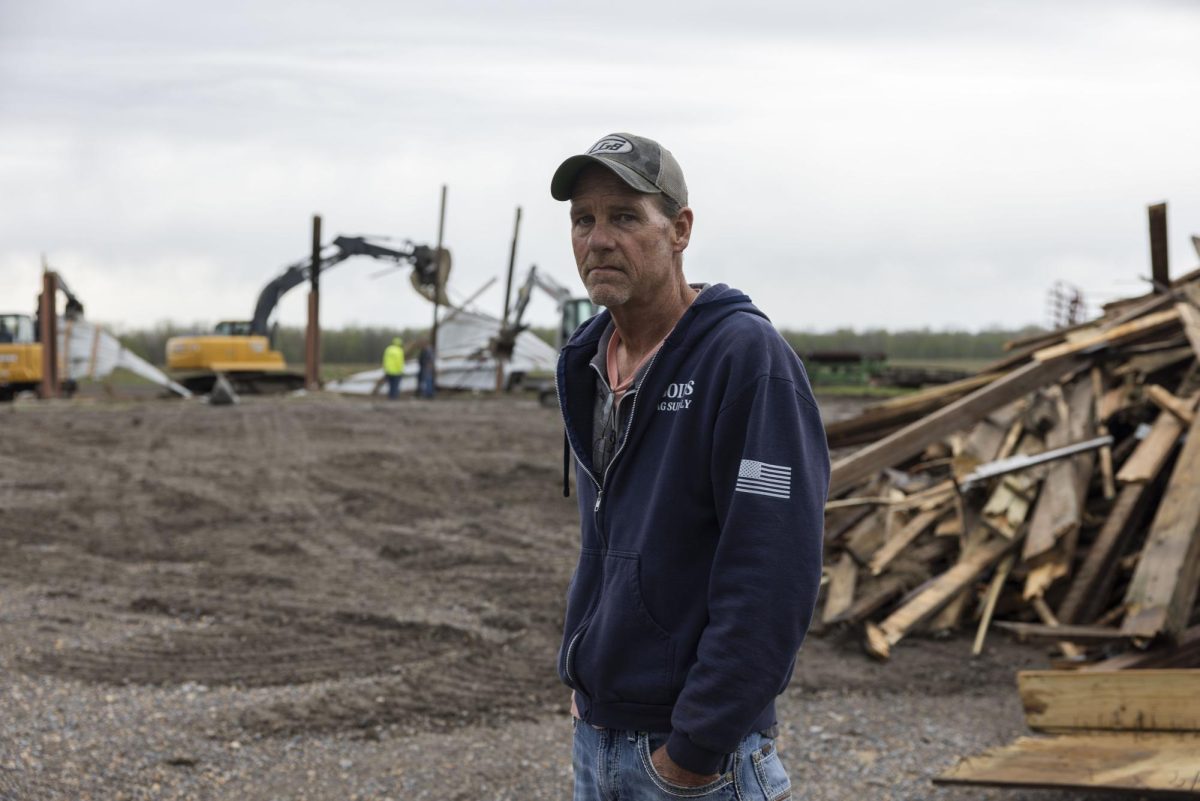Panel reflects on past, present, future of American politics
November 11, 2004
AAUW focuses year on public policy issues
lwilliams@dailyegyptian.com Twenty-two points, plus triple-word-score, plus fifty points for using all my letters. Game’s over. I’m outta here.
After an election such as last week’s is over, and a winner is chosen, many – including members of the American Association of University Women – wonder what is going to happen next.
Advertisement
As part of its semester long look at public policy issues, the Carbondale branch of the AAUW had a panel of SIUC personnel Tuesday to analyze the aftermath of Nov. 2’s contest.
Among those topics discussed were voter motives, a now Republican-heavy Congress and the fate of the Democratic Party in the years to come.
John Jackson, visiting professor in political science, said he believes the attacks of Sept. 11, 2001, and the war in Iraq rode heavily on the minds of this year’s voters and cited those events as reason for President Bush’s increases among many demographics.
“Clearly, fear and terrorism – and fear of terrorism – were crucial to this election,” Jackson said. “I think that was part of the whole context of the last three years with President Bush. Fear drove the election in a unique way we had not seen in a very long time.”
Patrick Kelley, a School of Law professor, said he believed the reason why the Bush administration won another four years was because it had a better “game plan.
“They wanted to mobilize their base, and they did,” Kelley said.
Barbara Brown, a lecturer in the Political Science Department, agreed that national security did play a key role in voters’ decisions, but said that security needs to be more broadly defined to include domestic issues such as education, health care and Social Security.
Advertisement*
Brown said the last election ushered in a new era and disproved many of the once “tried and true” outcome predicting methods.
“A lot of what we took as campaign wisdom really sort of went out the door last week,” Brown said. “That is because of the new era that we are living in. An era in which there is so much of uncertainty in the minds and the lives of the voters. It makes them particularly vulnerable to messages that play upon that insecurity.”
Where the Democrats went wrong in losing both the presidency and the majority of both the House and the Senate, Jackson said, was their ineffectiveness of taking a moral stand on social issues, causing the party to be in “the worst shape they have been in since Franklin D. Roosevelt.
“They are back to the pre-New Deal Democratic Party of the 1920s,” he said. “Democrats failed abysmally to make that case, and thus the Republicans and the right-wing dominated the definition of morality.”
Mike Lawrence, director of the Public Policy Institute, said he believed John Kerry failed to emerge as an adequate successor to undecided voters, even though many of them may not have been happy with the Bush administration.
“My gut feeling was, for whatever reason, John Kerry could not get a good, clear message to them,” he said. “I am not sure what that factor was, but I think there are a lot of people who had questions about John Kerry.”
As far as the appointment of U.S. Supreme Court justices, Jackson said Bush has the power to put members of his choosing on the bench, but Lawrence disagreed, saying the process would be “wait-and-see” because of how the federal system’s checks and balances work.
“I think that it is very possible that he will get part of what he wants, but there are other players in this besides the makeup of [Congress],” Lawrence said. “The media are big players. The interest groups are big players.”
In looking at the next four years under Bush, Kelley also said that an important issue to focus on in the present rather than the future is Social Security reform.
“We are on a pay as we go basis right now,” he said. “As I understand it, unless we do something, we are going to run out.”
Donna Randolph, AAUW vice president in charge of programs, said Tuesday’s event was part of the group’s semester-long dedication to public policy issues. The AAUW is open to all genders that have at graduated with at least a bachelor’s degree.
Randolph also said the self-educating process will help the members possibly choose an issue to focus on in the future.
“We wanted to take a stand this year and evaluate, and perhaps we may further explore and pick a project next year,” she said.
Advertisement








